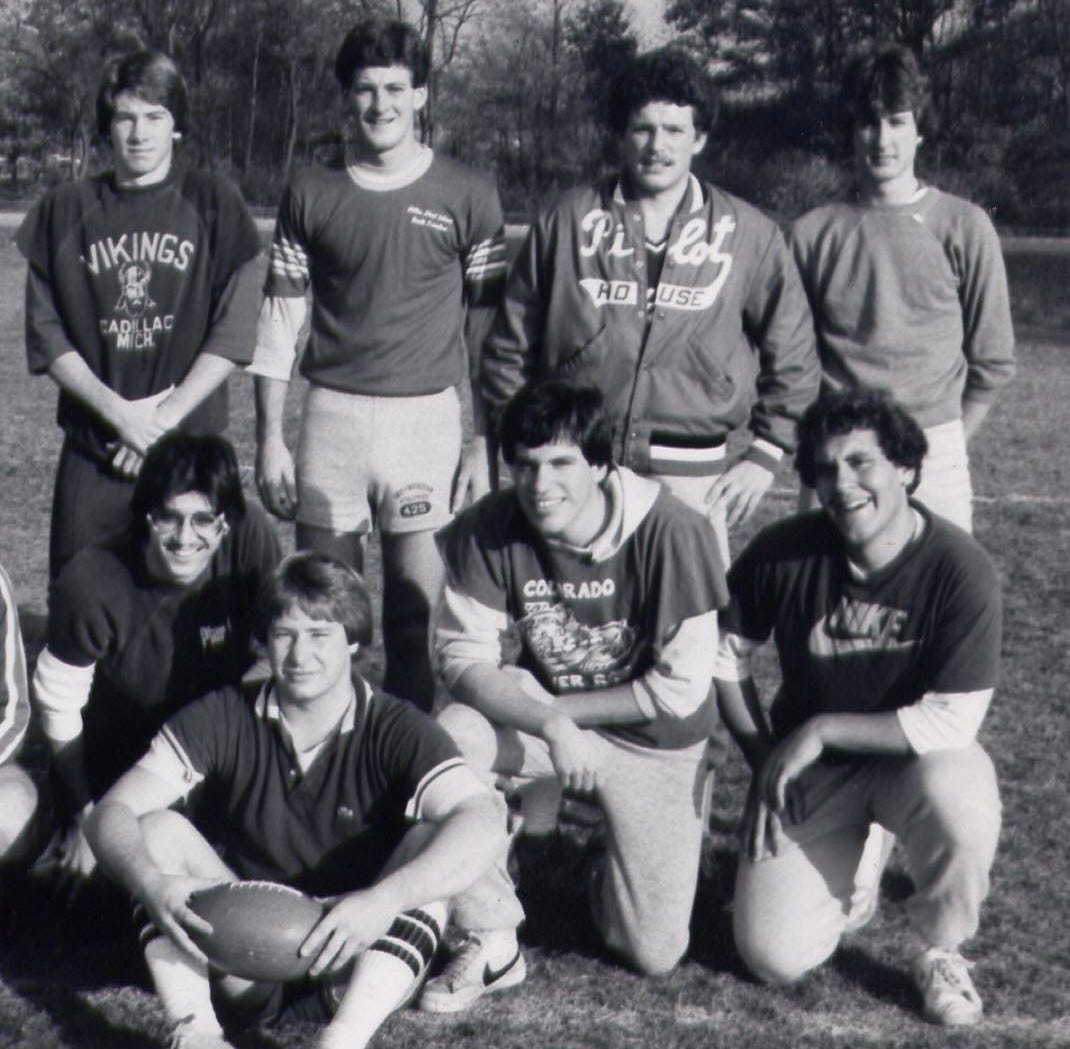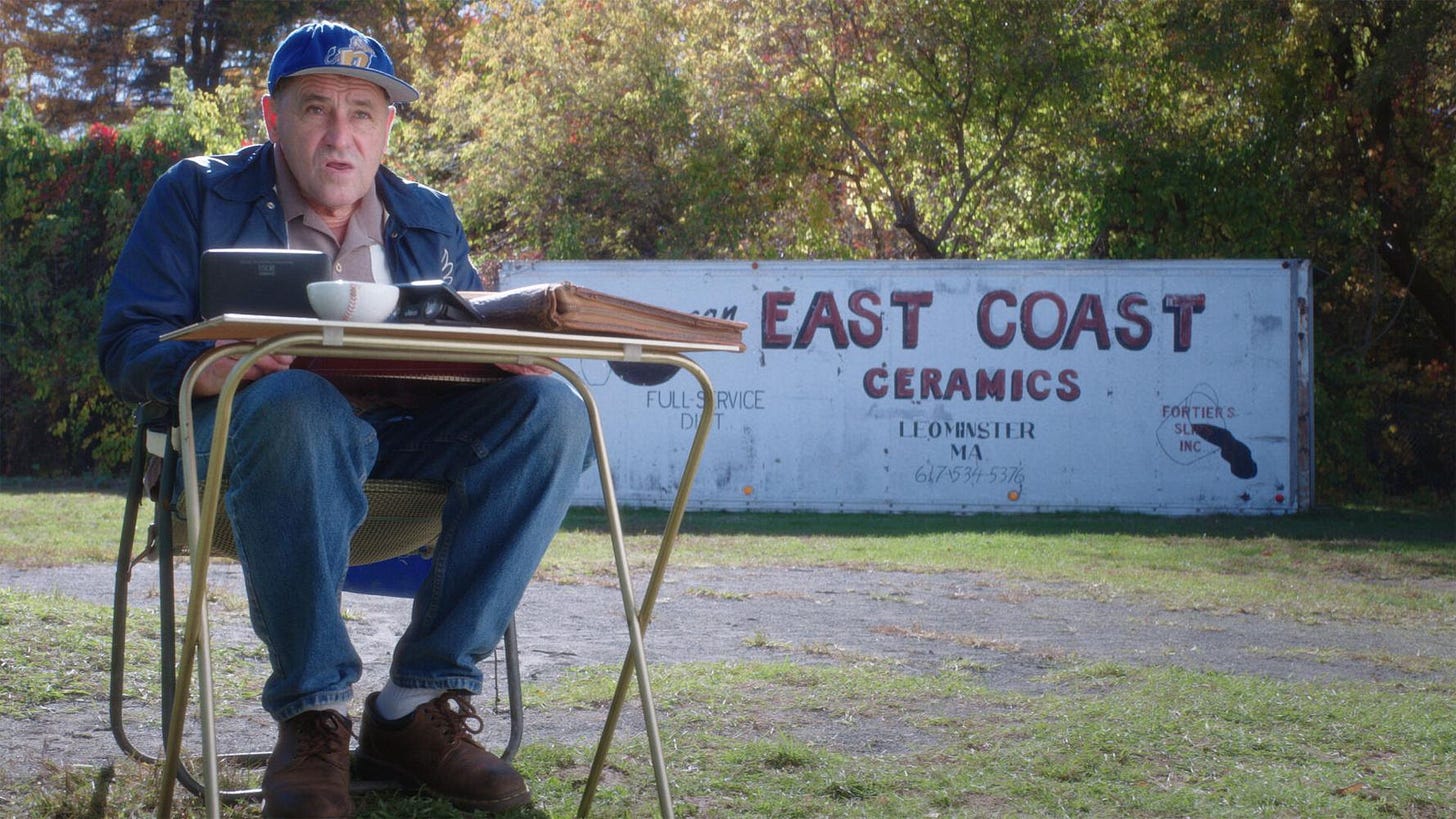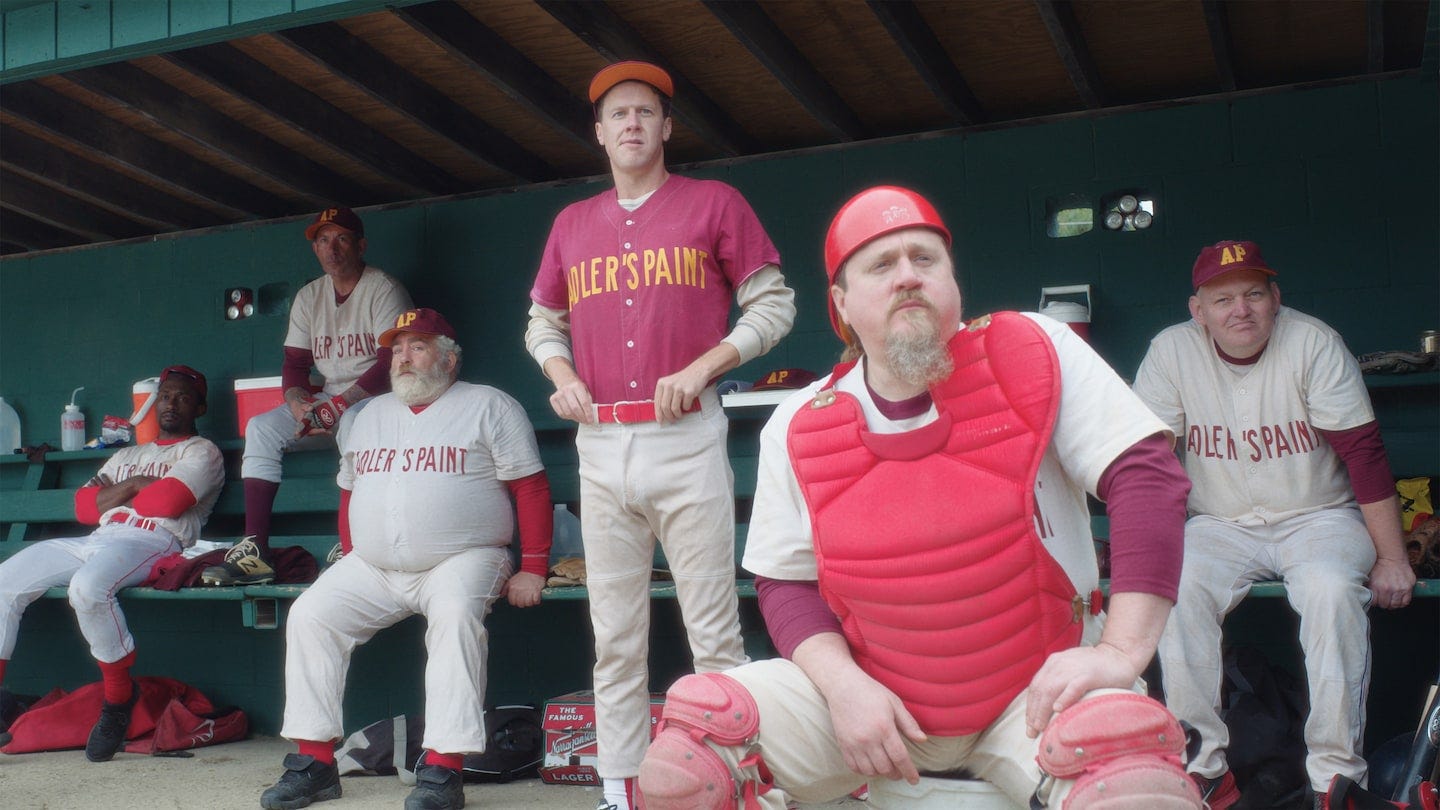Movie Review: 'Eephus' reminds us why we miss playing ball
A ballgame becomes a meditation on aging, friendship and letting go.
I’ve enjoyed every stage of life, including the one I’m in now. I like reminiscing, but I’ve never had much interest in rewinding the clock.
At 64, I’ve had wins and losses. Sure, there are things I’d do differently. But I’m more focused on what’s ahead — even if the next chapter is called “Old Man.”
Still, there’s one thing I truly miss: playing team sports.
From age 9 through college, I was always on a field or court — baseball, basketball, flag football, racquetball.
Most of it was rec-league stuff, but we played with passion. We competed and measured ourselves against each other.
I loved the physical test, the strategy, the thrill of winning — and most of all, the camaraderie.
Some of my best memories are from college: late-afternoon flag football games followed by pizza, laughter and long conversations about the game — and about life.
I miss that deeply.

One last game becomes a stand against time
That same longing — to hang onto something meaningful just a little longer — is exactly the struggle faced by the middle-aged men in the movie “Eephus.” And I felt every bit of it.
Anne and I streamed “Eephus” over the weekend. The movie, which is about 100 minutes long, is shot entirely at a decrepit ball field in a small Massachusetts town in the mid-1990s — yet the blend of humor and melancholy kept our interest all the way through.
Two amateur Sunday-league teams — Adler’s Paint and the Riverdogs — meet for the final game to ever be played at Soldiers Field, which will soon be demolished to make way for a new middle school.
There are a couple of younger athletes in the game, but most of them are aging, out-of-shape men who have been playing ball for decades. They struggle to run and to throw, but they love the game and they love competing (and hanging out) with other men for a few hours.
Most of them know this is their last game — probably forever. Yes, there is another league in the next town over, but that’s 30 miles away. It’s just too far. No one wants to make the trip.
They’re not ready to give up the game — or the brotherhood. So they keep playing. When the umpires pack up after their two paid hours, the scorekeeper makes the calls from the stands. When darkness falls, they line their cars along the field and flip on the headlights. One way or another, they’re finishing all nine innings.

No one leaves, even though they know they should. One guy admits his son’s been waiting at home for over an hour. Another is too tired — and too drunk — to keep playing, but he stays in the game. A few mumble about early mornings and work.
But still, they stay. Because they know this is the last game. Ever.
Then, at 3 a.m., as a church bell tolls in the distance, the winning run crosses the plate.
A couple of guys say, “We should still meet up for a beer sometime.” Others nod.
And they all know it won’t happen.
“Eephus” emphasizes the slow rhythms of baseball — conversations in the dugout and the camaraderie that binds middle-aged “weekend warriors.”
The players confront their fading athleticism, personal regrets, and the knowledge that this familiar gathering may never happen again.
An at-bat that was about more than baseball
One of the film’s most poignant moments centers on Bill Belinda — the only player whose family shows up to watch.
When his wife says in the middle of the game that she’s taking the kids home, Bill pleads for them to stay a little longer. “Let them see me bat,” he says, hoping for a moment they’ll remember. A moment to make them proud.
But he strikes out.
As his family quietly walks away, Bill sits in the dugout — embarrassed and despondent. “That might be the last time my kids ever see me play,” he tells a teammate.
He knows what’s slipping away. His children — 10 and 12 — are beginning to see him differently. The stage where Dad is a hero is ending. A new season is coming. And there’s no going back.
The eephus pitch
The movie is named after the “eephus” pitch, a slow looping, almost comical pitch that is rarely thrown in baseball. It barely even appears in the movie.
In the rare times that a pro baseball pitcher will throw the eephus, it’s to throw off the timing of a batter who tries to adjust to a 50 mph arcing toss after seeing 90 mph fastballs all game.
Here’s what the eephus pitch looks like:
The word “eephus” comes from a made-up term coined by Pittsburgh Pirates outfielder Maurice Van Robays in the 1940s.
When Pirates pitcher Rip Sewell debuted his famously slow, high-arcing pitch in 1942, a reporter asked Van Robays what to call it. He replied, "'Eephus ain't nothing, and that's a nothing pitch." The name stuck.
The eephus might be a nothing pitch, but in the hands of the right pitcher, it becomes an unexpected weapon.
Throwing an eephus is a kind of rebellion. It says, “I’ll play this game on my terms.”
The film echoes that spirit. These men know they’re aging, their field is being torn down, their time is passing. But for one more afternoon, they choose to play anyway. They are going out on their terms.
Some chapters in life fade away
I didn’t play sports after college. I never got into the softball league scene, as family, career and church quickly took center stage.
Still, I tried to fill the gap by coaching my kids’ teams — baseball, basketball, even the occasional swarm-of-bees 5-year-old soccer game.
It wasn’t the same as playing with high school or college buddies, but there was joy in it: the dugout banter, the encouragement, the thrill of competing again — this time from the coach’s box.
“Eephus” isn’t really about baseball. It’s about knowing when something is ending — and playing through it anyway.
I didn’t get a final game like that. Most of us don’t. One day you just stop playing. Other things take over.
But a movie like “Eephus” reminds you of what it felt like to be out there competing physically and mentally with other men.
And it reminds you that some chapters in life don’t end with a bang — they just fade away.




